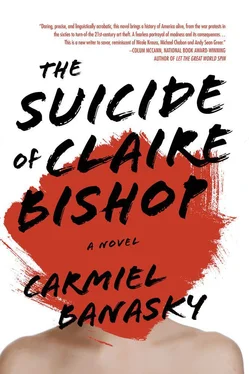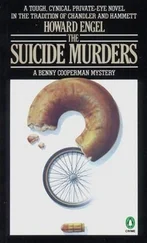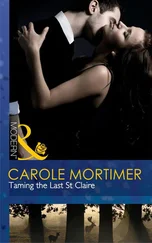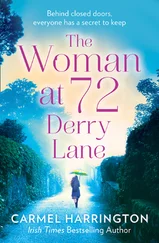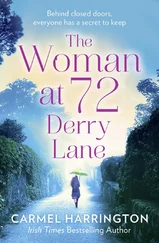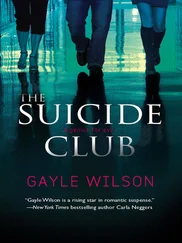“You don’t have to worry. She can’t die,” I say with as much certainty as I can muster. “The painting won’t let her.”
In the hospital lobby, the fluorescent lights spill on us, chlorinated pool water. I hold my breath. Jill is beside me, eyeing everyone suspiciously. There’s a doctor talking with a security guard at the reception desk, the words SORRY and CRAZY scrolling on the LCD screen above. It’s evening now. Visiting hours are over. But we stay on a bench in the corner like we know what we’re doing.
“The cops are after me,” I say to Jill, keeping my eyes on the guard and doc.
“What happened now?”
“I smashed a guy’s window.”
He just looks up at the vast skylight.
“And I hurt my sister. She’s never going to speak to me again.”
“Sisters are good at forgiving,” Jill says.
“Do you have a sister?”
“Not exactly. But I know.”
While we’re waiting, I get out my notebook, though I have little to work with now. This is why I stay away from hospitals. They’re outside any Homeland Security threat-advisory system with different rules. I don’t know what’s dangerous and what’s not anymore, what kind of connection to the Hasidim. The clues are a fuzzed-up carpet too tread upon.
And you, Lousy Voices — why are you in such a nasty mood? Telling me I’m wrong all the time, that I should give it up, that my time travel theories come from the movies. I know I’m a failure; tell me something new. Stop with the shadow-chorus of whispers! And turn off those red eyes. I’ve had enough of eyes. You may only remain if you have nice things to say.
But no matter how mean you are to me, I will not stop telling you the truth.
After everything else is gone, there’s still Nicolette’s painting in the tube on my lap. And couldn’t this all be orchestrated by her? This whole thing, the whole mystery, could be one of her installations. And where is she? Laughing in the wings, watching me flit about, ready to jump on stage when I’ve solved the thing?
But there’s only one way to know for sure. I flip to the front of my notebook. It all hinges on Premise 1:
NICOLETTE, THOUGH 26 YEARS OLD IN 2004, PAINTED “THE SUICIDE” IN THE LATE FIFTIES.
Everything follows from there. I add one last link to end the proof:
P8: ONLY TWO PEOPLE CAN VERIFY WHETHER P1 IS TRUE: NICOLETTE AND CLAIRE.
But Nicolette is gone.
Could she have wanted me to give the painting to Claire all along?
Now that the doctor has left, Jill walks up all smooth to have a word with the security guard. Some of the overhead lights have been turned off, and the nurses are switching shifts. The guard points to the elevator bank at the back of the lobby.
Jill waves me over and I follow him there. He and the guard whisper and the guard hands him a plastic badge with a string looped through and Jill hands it to me — a visitor’s pass, photocopied and forged.
“End of the line for me, kiddo,” Jill says, and swoops his hand through his silver hair. It doesn’t light up. It doesn’t do anything. The guard pushes the elevator UP button.
“What do you mean? We’re right here,” I say.
“Nope. Can’t go in. The boss here says only one of us. And you’re it.”
I look at the guard who’s picking his nose nearby, pretending not to pay attention. “I’m sure he’d be happy to take more money for you to come, too,” I offer. “I have the envelope.”
Jill rubs his face with his big hands and I think for a second he’s moved his features around, nose replacing forehead, but I’m mistaken. He just looks tired. The near-ultimate kind.
“I’m asking you for a favor, kid. I need you to make sure she gets it. And that she knows what it is and who it’s from. Got it?”
The elevator door opens, and we look at it, but we don’t move. It closes again.
“You’ll do great. You’re a smart guy. One of the smartest, seriously.” Nothing about his face spins dangerously. He’s telling the truth. Or at least what he thinks is the truth.
“Don’t you want to see her?” I ask.
“It’s my thing. Call it a weakness. Just tell her — tell her hi for me.”
“That’s it? Just ‘hi’?”
“Jesus. Then say — say I couldn’t help her, but I know someone who can. No, don’t say that, I don’t like that. Tell her — nah, nothing. It doesn’t matter anyway. She won’t know the difference.”
Jill shrugs his big, sad shoulders.
I am still talking to you about truth and love. There is no other way than this way. So that’s the way I go, into the elevator with the guard. He thinks he’s dangerous, but there is no way I can’t find her. There is nothing between us now except one bright thread. No Hasidim here. It’s as if there never were.
“I could get in a lot of trouble for this,” the guard whispers at me. “No funny business.”
“Like what?”
He huffs in response as we climb floors. The tube is under my arm. The glowing button hovers for floor nine. This is the part where I don’t know what happens next. What would happen if I ignored the thread? Last time I was in an elevator, Jill was with me. “Have you read about the disappearing bees?” I ask the guard.
“No.”
The metal mouth opens again, onto a sign that says ALZHEIMER’S RESEARCH CENTER. The center is closed and dim as if it’s always night here.
“Shit or get off the pot,” the guard says. Then, apologetically, “It’s a good ward.” He really thinks I’m her son. “One of the best in the country.”
Jill didn’t mention anything about Alzheimer’s.
There’s less security than in the main hospital; it’s its own wing and entity. I step out of the elevator. We pass the empty nurse’s station framed with Plexiglas so loaded with patients’ fingerprints it could topple over. The fingerprints reach for me but can’t peel themselves off. The guard unlocks the first door and holds it open. Past the blood lab, through double swinging doors, down another hallway haunted by light.
“Is it her birthday?” the guard asks about the wrapped painting.
“Yes,” I say.
The corridors surprise me. They don’t exist until I step into them. I feel like a rat building a maze. Doors open and close as I pass them, swashed by the wind of my walk. There are one hundred and three beds in the research center. I can feel every one of them, all stacked on my nose for a circus trick. It hurts my back. A night nurse doing paperwork at a counter glances up at us tiredly. The guard flashes his badge and she doesn’t say a word.
“Here we are,” the guard says. “Room 919.”
He makes as if to follow me in.
“That wasn’t part of the deal,” I say. “You wait here. Thank you for your help.”
“Fifteen minutes,” the big oaf says.
“Twenty.”
“Ten.”
“Okay, fifteen.”
I knock softly as I enter, shut the door behind me. And my heart nearly falls onto the clean hospital sheets. The bed is empty and freshly made, and the privacy curtain is half open on its ceiling track. Did I miss her? I edge around the first curtain, and find another slightly parted.
“Hello?” I say. The window lets in a sepia tone. The sun has set but is still throwing in light. Under a beige blanket are the shapes of feet. I step through the parted curtain.
She is lying on her back, a bouquet of gray hair splayed out on the pillow. Asleep, but not restful, frowning at her dream. I unwrap the tube then pull the painting out and unroll it. I peer at the faces of the women on the canvas, then up again at the woman in bed. Her face is the face in the painting. It is her exactly, all the women falling. There is Claire Bishop.
Читать дальше
